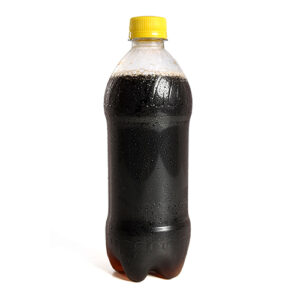5/25
Do plant-based products perform as well as traditional products and materials?
A common myth we often hear is that plant-based products don’t perform as well as their conventional fossil fuel-based counterparts. For example, many consumers worry that bamboo or seaweed-based serviceware won’t provide the same standards they’re used or to, or will disintegrate or melt upon use. As for using plant-based products in construction materials or car parts? That’s sure to raise some eyebrows.
The fact is, these perceptions couldn’t be farther from the truth. Many plant-based products are chemically identical to traditional ones already in use, and others provide unique or even improved functionality. Plant-based materials can be used to create everything from apparel to building and automotive parts to toys and games and more – creating durable, long-lasting products that provide a more sustainable option for our planet.
Here are a few examples of high-quality, plant-based goods:

Auto manufacturers use hemp fibers to make car parts and have discovered this material is stronger than steel.
PBPC member PepsiCo created a bottle entirely composed of plastic made from plant materials like orange peels, oat hulls, potato scraps, and other agriculture waste. The bottle is “indistinguishable” in look, feel, and function when compared to traditional bottles made with petroleum-based plastics.


Plant-based raw materials, like XanoGrass™ from Hexas, have equal or better performance compared to other wood or non-wood biomass. XanoFiber panels provide the same or better physical and mechanical performance at a lower cost without the need to alter existing manufacturing systems.
Plant-based materials like mushroom leather and fruit leather are used to create clothing and shoes that are market-ready, wearable options.


Bio-polyester, like the one created by PBPC member Virent, performs identically to traditional polyester because it is chemically identical, all while leading to a greater than 50% decrease in its greenhouse gas footprint.
PBPC members like Footprint design packaging and service ware to provide sustainable options in supermarkets around the world. Different products from Footprint are freezer safe or shelf stable and boast materials stronger than traditional plastic. You can even buy the same cup for hot, cold, carbonated, sugary, creamy, and alcohol drinks.


Food take-out containers made from a variety of plant-based materials are popping up in more and more restaurants and delivery services. These bags and containers provide the same functionality as their traditional counterparts but are an important step in helping us end our reliance on fossil fuel-based plastic. Many, like TIPA’s products, are even compostable!
While the applications and uses of these products vary, they all begin at the same place – by using plants for feedstocks! Chemists and manufacturers take inputs like algae, corn, bamboo, and hemp and put them through different processes to convert them into materials like bio-based plastic resins or renewable chemicals. These materials are used to create the products we use each and every day. An exciting benefit to plant-based products is how they can contribute to less waste in our landfill. Many are recyclable or even compostable, which supports healthy soils to help create the next generation of renewable feedstocks to start the cycle over again.
In addition to helping create long-lasting, quality goods, plant-based products provide a host of environmental benefits. Feedstocks used to create these materials remove carbon dioxide (CO2) from the atmosphere during their growing phase, and some is even sequestered in the materials during their time as a useful consumer product. Unlike materials derived from fossil fuels, plant-based products provide a solution to greenhouse gas emissions and get us one step closer to achieving a “net-zero” future.
Increasing our investment in plant-based products is an important step to create a greener world – but we can’t do it without support from advocates who share our passion for sustainability. Sign up for updates from PBPC to stay in the know on the latest initiatives and opportunities for ways YOU can get involved. With your help, we can encourage greater adoption of useful, renewable products.
